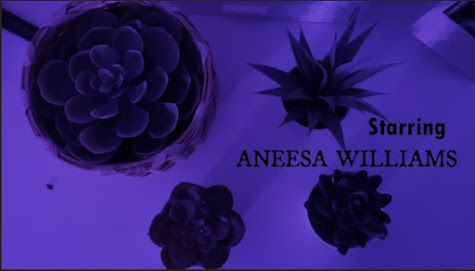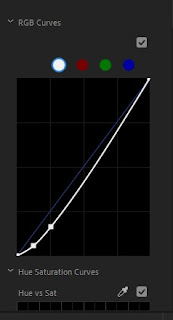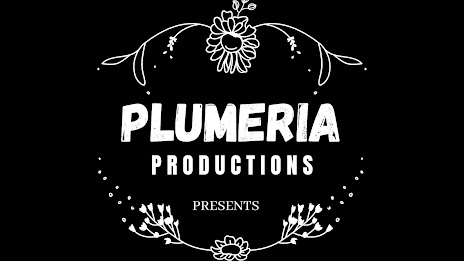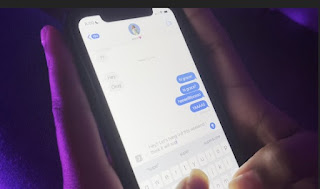With my editing almost done, It's time we get started on my CCR, the Creative Critical Reflection. Today I'll be writing my script and recording my CCR, but before I can do that I need to answer some really important questions.
How does your product use or challenge conventions and how does it represent social groups or issues?
Being a coming-of-age movie, Medicate focuses on the characters’ mental, emotional, and personal growth. It deals with their life struggles as they mature and how they interact with their environment, therefore relying on dialogue and emotional responses, rather than action. It also has one clear social commentary that is developed throughout the piece, and through my research, I realized that films focusing on mental health are still not as often produced as they should be, and are quite often also portrayed inaccurately.
“If mental illness is represented inaccurately in film, such can lead to harmful stereotypes, spreading of misinformation, negative attitudes towards the mentally ill, and barriers for people dealing with mental illness (Kimmerle and Cress; Smith et al.; Pirkis et al.).”
Early 2000’s movies like Mean Girls (2004), Not Another Teen Movie (2001), and The Princess Diaries (2001) heavily rely on stereotypes like the greek, the jock, the popular girl, etc, to tell a story. I knew this was the last thing I wanted to do, and I strayed far from it.
Not just societal roles are stereotyped, many mental illnesses are heavily misunderstood, and pieces that rely on little research can often cause more harm than good when portraying them in their films. One example of this is the movie Split (2016), which talks about Dissociate Identity Disorder, but consistently exaggerates the disorder’s symptoms and causes the audience to fear people suffering from DID.
Representation was also a really big part of my research as I knew I wanted my film to focus on a character suffering from a mental disorder, and I chose GAD because it’s extremely common and most people, even people without GAD can relate with the feeling of anxiety. To no one’s surprise, historically, people with mental disorders and the LGBTQ+ community have been two of the largest groups to be underrepresented in media or represented inaccurately. With my piece, I knew that needed to change. And having an African American protagonist is still not as common as it should be.
How does your product engage with audiences and how would it be distributed as a real media text?
My target audience for this film is gen z teenagers and as a gen z teenager myself, I can safely say growing up in this technological era has been quite challenging for us mentally. With Medicate, I want gen z teenagers to feel understood and taken seriously, I want their issues and struggles to be represented and relatable so they, we, feel less alone knowing so many other people go through the same things. Rhia’s constant worry about saying the right things online, and Grace’s obsession with her social status are characteristics of this great dependency on our phones and online lives. The personification of Rhia’s thoughts into clones of herself is also an innovative and creative way to show the daily interactions between one’s thoughts that constantly fight each other, seeing all the bad sides of things before they even happen.
And, as I said, gen z kids have grown in the big technological era, which means the largest media site for distributing films for teens is online. According to a new survey by Piper Jaffray, teens watch more than twice as much Netflix as cable TV in the US. In the half-yearly report of Taking Stock with Teens Survey, it was revealed that on average, teens said they use Netflix for 38 percent of their daily video consumption. Therefore the best way to distribute for gen z teens is on online streaming devices like Netflix, Disney +, YouTube, and HBO Max. There’s a slight problem with that though, I’m an amateur filmmaker. I cannot distribute my film to large companies like Netflix, therefore I will have to use free streaming devices like YouTube, Instagram reels, Tiktok, etc.
How did your production skills develop throughout this project?
I knew this project would be very time-consuming, so I made a list on my phone of all the blog posts I needed to do and when I needed to do them, and it has worked really well so far!! Haven't missed any weeks!! I also knew that research would be boring but the easiest part of the project, so I gave my all into researching. Each post had at least 3 sources and I went into detail about how I would use the research in my project, which I already knew I could do.
What I was worried about from the start was editing. That is what I knew the least about and it kept constantly worrying me. But I let myself follow my schedule. At first, I was really scared about working on my own in a project as big and time-consuming as this one, but I quickly realized I hate working with other people because I hate relying on them for things. So asking people to be my actors in my film was absolutely terrifying. So I resorted to one, an actress, and someone I already knew and could help me, as well as had experience. The filming process was smooth and we got everything done in only two days of filming, which is way less than what I expected. I only encountered some obstacles with the quality of the audio and videos, but I figured I could fix a lot of it during editing.
I wasn't wrong, editing has fixed a lot of my problems, but considering it has been a problem itself doesn't really help. I've had to watch a dozen of "how-to" videos and research articles because I was too ambitious with effects and the quality of my film. Adobe Premiere Pro also wasn't cooperating either, I kept running into errors and at one point I was just ready to give up. But I knew that the more I researched the more I would learn for future projects and for the rest of my life. I truly learned to be patient, and resilient, and not let some small issues stop me from achieving what I envisioned. I also learned that sometimes things don't turn out the way you wanted them to and that's okay!! Because sometimes the alternative is just as good, and overcoming the obstacles is very validating.
How did you integrate technologies – software, hardware, and online – in this project?
As someone who has been in this media class for months now, I was not prepared for the amount of technology I'd run into, but most importantly how much I'd have to learn. I had never used lighting for production, much less colored lighting which was crucial to developing the characters in my story. I had never used Adobe Premiere Pro for editing (as I was using DaVinci Resolve previously) and had to learn from scratch how the software worked and how to edit my film. I had to learn how to blog, which sounds a lot easier than it actually is. The google tool called Blogger (literally where I'm posting this right now lol) was really easy to master, but the actual writing was tough. I mean, I had to show personality but also professionalism, how does one even do that?
Even with all the new skills I had to learn, technologies did really help me throughout this whole project. Editing showed me how much I could accomplish with amateur skills and a little searching website called google, hope you've heard of it? I was able to search for many tutorials and achieve great things, even when obstacles like the quality of the video not being great, or the brightness on the phone shots being too high, I could overcome those things and learn how to navigate my way through the software.


.jpeg)










